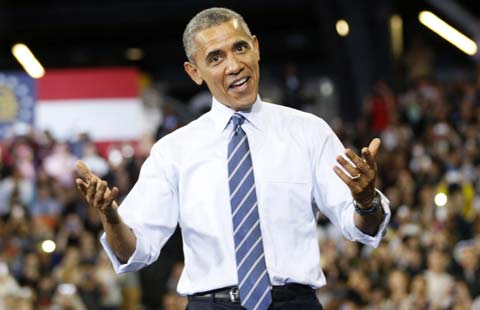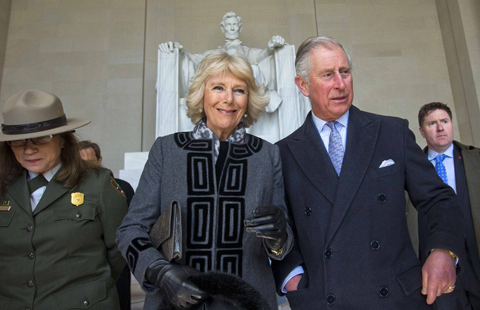Venture capital monsoon a boon for expats
Updated: 2015-03-20 12:16
By Matt Hodges(China Daily USA)
|
||||||||
 |
|
Mark Secchia poses for a group photo with some of his couriers. Provided to China Daily |
First in, best dressed
When it comes to Sherpa's, Secchia's success owes as much to his business savvy as to his early-player advantage.
He is fluent in Mandarin, was one of the first foreigners to earn an MBA from Shanghai's prestigious China-Europe International Business School (CEIBS) - and he knows how to work with the Chinese.
Secchia doesn't actually have a joint venture or wholly owned foreign enterprise (WOFE) to do the business. He uses it as a consulting platform through which he consults to local companies like Sherpa's.
"I do this weird mix. I'm neither Chinese nor foreign. I'm both," he said. "Take Sherpa's, for example. We look like a foreign company at hiring fairs, but in reality everything is like a Chinese company."
To set up his latest venture, he registered a WOFE, of which he is the owner and only employee. The company has a contract with Sherpa's to act as its sole supplier, but Sherpa's is owned by Secchia's silent business partner, Shanghai's Benny Ji. The two were classmates at CEIBS.
However brash the Shanghainese may seem, forging links with them can pay dividends, he said.
"They can be a bit standoffish from the beginning, unlike in Beijing, where you can instantly be someone's 'gemenr' (brother)," he said. "But once you do establish relationships they run very, very deep and last throughout much more adversity than a relationship that is made too easily and quickly like in other areas of China."
Flavor of the month
Michael Michelini, author of "Hong Kong Supercharged", is finishing his second book on setting up a company in China.
"If you want to import luxury goods or food to supply Chinese people, and find distributors, Shanghai is where it's at," he said.
Element Fresh, a health-accented restaurant chain started by Americans Scott Minoie and Sheldon Habiger in 2001, now has 26 restaurants spread across several Chinese cities.
Wagas and Yasmine's Steakhouse and Butcher Shop also number among the foreign-founded success stories in the local food and beverage industry.
The local business climate also favors fashion, cosmetics, advertising agencies "and to a lesser extent, finance, but this is growing," according to T.R. Harrington, the American founder of digital marketing consultancy Darwin Marketing.
Healthcare is another biggie. Demand is escalating for higher-quality medical services, supplements, vitamins - even protein shakes.
The specialist
New Yorker Scott Kein, 51, worked with the US Olympic Committee to set up a special orthopedic program for the 2008 Beijing Games. Later he partnered with NFL China to provide sports medicine services.
"Now you see more people coming here with niche skills and working with rather than against local companies, and trying to complement what they do," he said.
He registered his company, the Institute of Western Surgery (IWS), in Guangzhou, near the border with Hong Kong, in 2009. It provides subspecialist medical care and other services, and recently set up a second office in Shanghai.
"Shanghai has lots of good-quality primary care doctors, but very few specialists," he said. "In Guangzhou, people would go to Hong Kong for treatment, but people don't want to leave Shanghai."
"We work with clinics and private hospitals, but we want to do it in a way that's collaborative," he said. "We help them bring in specialized equipment, or doctors to carry out non-invasive surgery. We help multinationals with their diabetes testing and get the technicians trained and come up with a whole business plan."
"What we do is very unique. Our model doesn't exist in the US," he added. "But now there's a government push to promote public health here."
Williams is also seeing "tremendous demand for supplemental education for the middle class." "Anything online you can subscribe to is of high interest," he added.
AmCham Shanghai's SME Center welcomes drop-in visitors at its office next to the Portman Ritz-Carlton on Nanjing Road, an epicenter for luxury shopping. For $1,000 a year, companies can get plugged in to the AmCham matrix and have a useful digital platform at their disposal. It also works closely with the Shanghai Foreign Investment Development Board (Invest Shanghai).
"The key for success is to team up with the right providers: The right Chinese suppliers, the right Chinese e-commerce firms, people who can provide accurate information on logistics and free trade zones," he said.
Yu Ran in Shanghai contributed to this story.

 Across America over the week (from March 13 to 19)
Across America over the week (from March 13 to 19)
 How much do world leaders earn?
How much do world leaders earn?
 Daredevil ropejumpers leap 200 meter off cliff
Daredevil ropejumpers leap 200 meter off cliff
 Harley motorcade shows up in Boao, Hainan
Harley motorcade shows up in Boao, Hainan
 Ming art sets Christie's high
Ming art sets Christie's high
 Stolen-phone bromance blossoms in China
Stolen-phone bromance blossoms in China
 Prince Charles, Camilla get royal tour of Washington
Prince Charles, Camilla get royal tour of Washington
 Should selfie sticks be banned?
Should selfie sticks be banned?
Most Viewed
Editor's Picks

|

|

|

|

|

|
Today's Top News
China's plan to move from being 83
Investors tour Bay Area
Ex-Chinese official indicted in
money laundering
Yahoo to exit from Chinese
mainland market
Sticking it to the selfie stick as museums ban
US sends 'green' mission to China
Sticking it to the selfie stick
China's eco-friendly companies stand to gain
US Weekly

|

|








